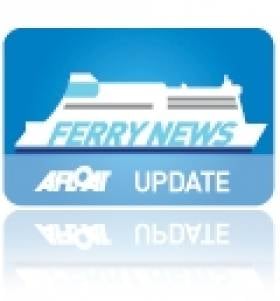Displaying items by tag: French trade vehicles
New Vessel on the Horizon for Celtic Link Ferries
With an increased capacity of nearly 1,000 passengers accommodated in 428 cabin berths, the vessel will offer a wider choice of bars, restaurents and childrens' play area compared to the current route ro-pax Norman Voyager, which like her successor was built by Italian shipbuilders Visentini. The 25-knot replacement ship will have 2,285 lane metre space for 800 cars or 150 freight vehicles.
Celtic Horizon becomes the first vessel to incorporate the companies name since foundation in 2005 when the freight-ferry Diplomat started operations. In recent years the company has secured the contract to import new trade vehicles from French manufacturers.
Before the newcomer makes her Autumnal debut, the 2006 built vessel is currently operating as Cartour Beta while on charter to Caronte and Tourist's (C&T) Salerno-Messina service in Sicily. To read more click here.
As for the Norman Voyager, she first entered as a newbuild in 2008 for LD Lines weekend operated Rosslare-Le Havre route, subsequently transferred to Cherbourg. LD Lines first foray into the Irish market was short-lived as the ro-pax was sub-chartered to Celtic Link Ferries the following year, though the French company are to transfer the vessel to their Marseilles-Tunis route in November.
- Diplomat
- Celtic Link Ferries
- Ports and Shipping
- RosslareCherbourg
- Norman Voyager
- Visentini
- RoPax
- FreightFerry
- Ferry news
- LD Lines
- Cartour Beta
- Caronte and Tourist
- Visentini ropax
- RosslareLe Havre
- SalernoMessina
- MarseillesTunis
- Irish ferry market
- IrishFrench ferry services
- Irish ferry sector
- Irish Ferries
- RoPax Norman Voyager
- Rosslare Port
- Rosslare Europort
- French trade vehicles
- Citreon
- Peugoet
- Renault




























































